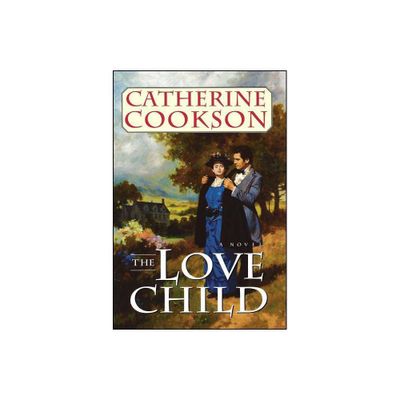Home
Washita Love Child: The Rise of Indigenous Rock Star Jesse Ed Davis
Loading Inventory...
Barnes and Noble
Washita Love Child: The Rise of Indigenous Rock Star Jesse Ed Davis
Current price: $24.99


Barnes and Noble
Washita Love Child: The Rise of Indigenous Rock Star Jesse Ed Davis
Current price: $24.99
Loading Inventory...
Size: Audiobook
*Product Information may vary - to confirm product availability, pricing, and additional information please contact Barnes and Noble
Kirkus Reviews
• Best Books of 2024 [Nonfiction] “I first met Jesse Ed Davis in the late ’80s. . . . [He was a] gentle yet intensely present giant who was a legend of an artist. . . . In
Washita Love Child
, Jesse Ed Davis is resurrected in story.” —Joy Harjo, from the foreword
No one played like Jesse Ed Davis. One of the most sought-after guitarists of the late 1960s and ’70s, Davis appeared alongside the era’s greatest stars—John Lennon and Mick Jagger, B.B. King and Bob Dylan—and contributed to dozens of major releases, including numerous top-ten albums and singles, and records by artists as distinct as Johnny Cash, Taj Mahal, and Cher. But Davis, whose name has nearly disappeared from the annals of rock and roll history, was more than just the most versatile session guitarist of the decade. A multitalented musician who paired bright flourishes with soulful melodies, Davis transformed our idea of what rock music could be and, crucially, who could make it. At a time when few other Indigenous artists appeared on concert stages, radio waves, or record store walls, in a century often depicted as a period of decline for Native Americans, Davis and his Kiowa, Comanche, Cheyenne, Seminole, and Mvskoke relatives demonstrated new possibilities for Native people. Weaving together more than a hundred interviews with Davis’s bandmates, family members, friends, and peers—among them Jackson Browne, Bonnie Raitt, and Robbie Robertson—
powerfully reconstructs Davis’s extraordinary life and career, taking us from his childhood in Oklahoma to his first major gig backing rockabilly star Conway Twitty, and from his dramatic performance at George Harrison’s 1971 Concert for Bangladesh to his years with John Trudell and the Grafitti Man band. In Davis’s story, a post-Beatles Lennon especially emerges as a kindred soul and creative partner. Yet Davis never fully recovered from Lennon’s sudden passing, meeting his own tragic demise just eight years later. With a foreword by former poet laureate Joy Harjo, who collaborated with Davis near the end of his life,
thoroughly and finally restores the “red dirt boogie brother” to his rightful place in rock history, cementing his legacy for generations to come.
• Best Books of 2024 [Nonfiction] “I first met Jesse Ed Davis in the late ’80s. . . . [He was a] gentle yet intensely present giant who was a legend of an artist. . . . In
Washita Love Child
, Jesse Ed Davis is resurrected in story.” —Joy Harjo, from the foreword
No one played like Jesse Ed Davis. One of the most sought-after guitarists of the late 1960s and ’70s, Davis appeared alongside the era’s greatest stars—John Lennon and Mick Jagger, B.B. King and Bob Dylan—and contributed to dozens of major releases, including numerous top-ten albums and singles, and records by artists as distinct as Johnny Cash, Taj Mahal, and Cher. But Davis, whose name has nearly disappeared from the annals of rock and roll history, was more than just the most versatile session guitarist of the decade. A multitalented musician who paired bright flourishes with soulful melodies, Davis transformed our idea of what rock music could be and, crucially, who could make it. At a time when few other Indigenous artists appeared on concert stages, radio waves, or record store walls, in a century often depicted as a period of decline for Native Americans, Davis and his Kiowa, Comanche, Cheyenne, Seminole, and Mvskoke relatives demonstrated new possibilities for Native people. Weaving together more than a hundred interviews with Davis’s bandmates, family members, friends, and peers—among them Jackson Browne, Bonnie Raitt, and Robbie Robertson—
powerfully reconstructs Davis’s extraordinary life and career, taking us from his childhood in Oklahoma to his first major gig backing rockabilly star Conway Twitty, and from his dramatic performance at George Harrison’s 1971 Concert for Bangladesh to his years with John Trudell and the Grafitti Man band. In Davis’s story, a post-Beatles Lennon especially emerges as a kindred soul and creative partner. Yet Davis never fully recovered from Lennon’s sudden passing, meeting his own tragic demise just eight years later. With a foreword by former poet laureate Joy Harjo, who collaborated with Davis near the end of his life,
thoroughly and finally restores the “red dirt boogie brother” to his rightful place in rock history, cementing his legacy for generations to come.


















